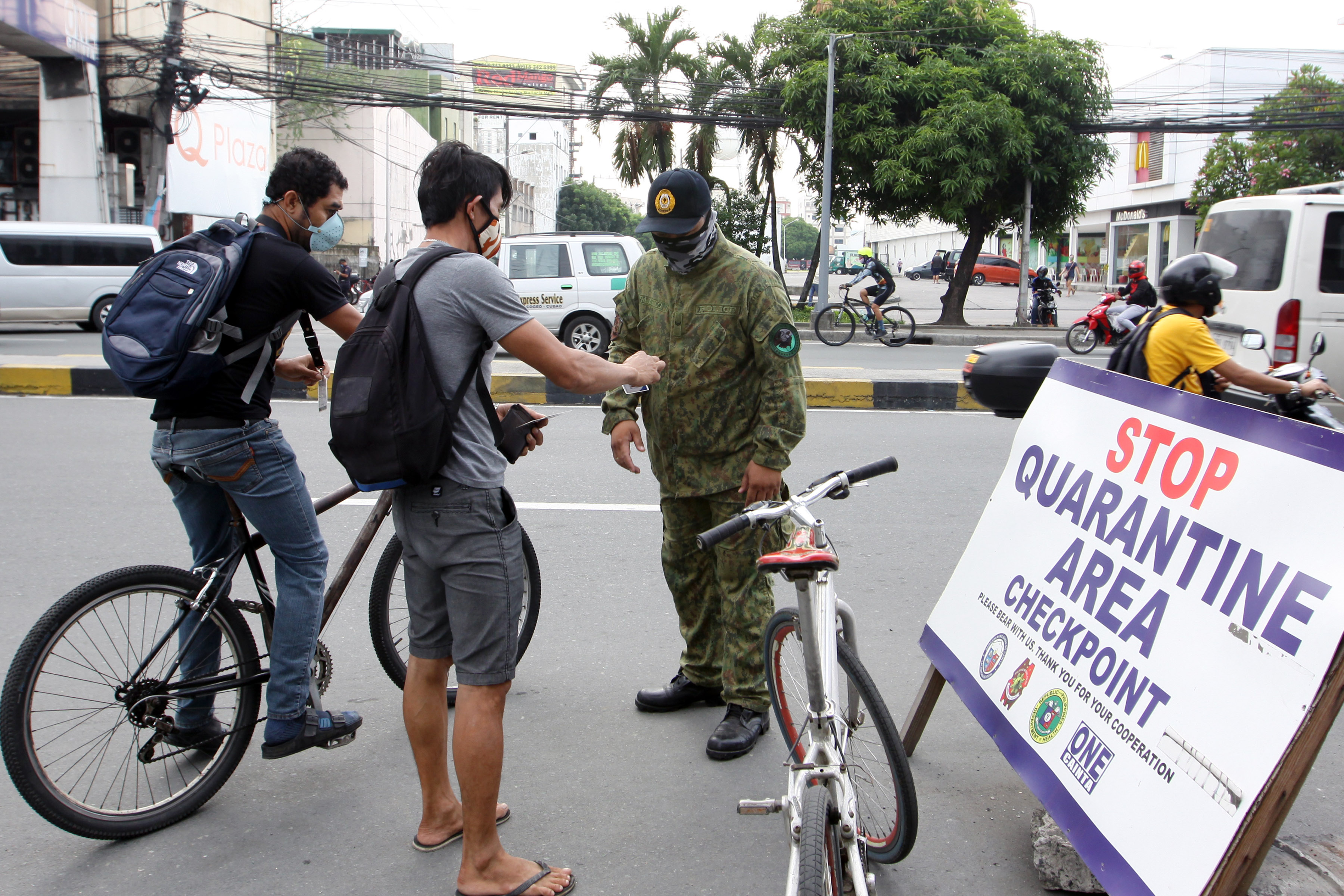
MANILA – Despite the further relaxation of quarantine rules nationwide, the Inter-Agency Task Force for the Management of Emerging Infectious Diseases (IATF-EID) has ordered the “strict” implementation of localized lockdowns in areas under general community quarantine (GCQ).
The latest directive was contained in IATF-EID Resolution 64 approved on Monday.
Under the resolution, all local governments whose areas of jurisdictions are placed under GCQ are directed to observe the “strict” enforcement of localized community quarantine in identified component cities, municipalities, and villages with community transmission.
Presidential Spokesperson Harry Roque, also acting as IATF-EID spokesperson, also announced the fresh order in a virtual press conference aired on state-run PTV-4.
“Inatasan ang mga nasabing lugar na mahigpit na ipatupad ‘yung pag-implementasyon po ng localized community quarantine o granular lockdown (These areas are directed to strictly implement the localized community quarantine or granular lockdown),” he said.
On Monday, Duterte approved the IATF-EID’s recommendation to downgrade the quarantine status in Metro Manila, Bulacan, Cavite, Laguna, and Rizal to the less restrictive GCQ from the more stringent modified enhanced community quarantine.
GCQ will also be imposed in Nueva Ecija, Batangas, and Quezon provinces, along with the cities of Iloilo, Cebu, Lapu-Lapu, Mandaue, and Talisay, and the municipalities of Minglanilla and Consolacion in Cebu province.
Modified GCQ will be implemented in the rest of the country until August 31.
In its Resolution 64, the IATF-EID also directed the strict observance of minimum public health standards, especially in high-risk areas, such as health care settings, wet markets, supermarkets, government offices, workplaces, public transportation, and areas with increased economic activity.
The resolution also mandates the strict enforcement of active surveillance and case finding, immediate facility-based quarantine of suspect and probable cases of the coronavirus disease 2019 (Covid-19), as well as symptomatic close contacts.
The availability of isolation facilities in critical areas, scaling up of the local health system capacity, and submission of complete and accurate data related to the pandemic must also be ensured, according to the IATF-EID’s latest resolution.
‘General rule’ is to stay home
Roque also reminded the public that in areas placed under GCQ, only essential workers and authorized persons outside residence are allowed to leave their homes.
He said people aged 20 and below and 60 and above, as well as those sick and pregnant women, are advised to stay home amid the health crisis.
Roque said the “general rule” is for Filipinos to observe home isolation to keep them free of Covid-19.
“Pero ang general rule pa rin po talaga, kung hindi naman magta-trabaho eh huwag na pong lumabas. ‘Yun po talaga ang general rule natin (The general rule is if you will not work, do not leave your home. That’s our general rule),” he said.
Roque also emphasized that mass gatherings are still prohibited in GCQ zones.
Only critical government services and humanitarian activities are allowed, he said.
Roque added that the resumption of public transportation is permitted in areas under GCQ, so long as strict social distancing is observed.
He also reiterated that only a maximum of 10 people could join a religious gathering.
Roque likewise noted that gyms are not allowed to operate in areas placed under GCQ.
However, the operation of dine-in establishments is allowed in GCQ zones, he said.